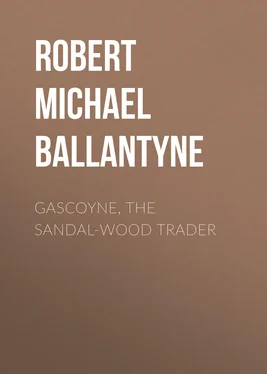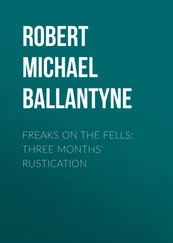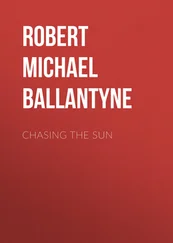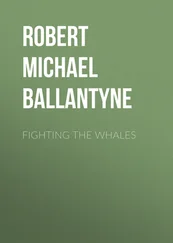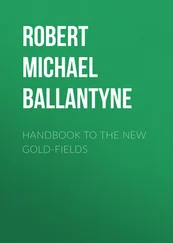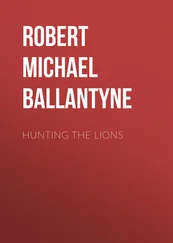Robert Michael Ballantyne - Gascoyne, the Sandal-Wood Trader
Здесь есть возможность читать онлайн «Robert Michael Ballantyne - Gascoyne, the Sandal-Wood Trader» — ознакомительный отрывок электронной книги совершенно бесплатно, а после прочтения отрывка купить полную версию. В некоторых случаях можно слушать аудио, скачать через торрент в формате fb2 и присутствует краткое содержание. Жанр: Детские приключения, literature_19, foreign_antique, foreign_prose, foreign_children, на английском языке. Описание произведения, (предисловие) а так же отзывы посетителей доступны на портале библиотеки ЛибКат.
- Название:Gascoyne, the Sandal-Wood Trader
- Автор:
- Жанр:
- Год:неизвестен
- ISBN:нет данных
- Рейтинг книги:3 / 5. Голосов: 1
-
Избранное:Добавить в избранное
- Отзывы:
-
Ваша оценка:
- 60
- 1
- 2
- 3
- 4
- 5
Gascoyne, the Sandal-Wood Trader: краткое содержание, описание и аннотация
Предлагаем к чтению аннотацию, описание, краткое содержание или предисловие (зависит от того, что написал сам автор книги «Gascoyne, the Sandal-Wood Trader»). Если вы не нашли необходимую информацию о книге — напишите в комментариях, мы постараемся отыскать её.
Gascoyne, the Sandal-Wood Trader — читать онлайн ознакомительный отрывок
Ниже представлен текст книги, разбитый по страницам. Система сохранения места последней прочитанной страницы, позволяет с удобством читать онлайн бесплатно книгу «Gascoyne, the Sandal-Wood Trader», без необходимости каждый раз заново искать на чём Вы остановились. Поставьте закладку, и сможете в любой момент перейти на страницу, на которой закончили чтение.
Интервал:
Закладка:
The scene through which young Henry Stuart now led his seafaring companions was of that rich, varied, and beautiful character which is strikingly characteristic of those islands of the Pacific which owe their origin to volcanic agency. Unlike the low coral islets, this island presented every variety of the boldest mountain scenery, and yet, like them, it displayed all the gorgeous beauty of a rich tropical vegetation. In some places the ground had been cracked and riven into great fissures and uncouth caverns of the wildest description, by volcanoes apparently long since extinct. In others the landscape presented the soft beauty of undulating grove-like scenery, in which, amid a profusion of bright green herbage, there rose conspicuous the tall stems and waving plumes of the cocoa-nut palm; the superb and umbrageous ko-a, with its laurel-green leaves and sweet blossoms; the kukui or candle-nut tree, the fragrant sandal-wood, and a variety of other trees and shrubs for which there are no English names.
Hundreds of green paroquets with blue heads and red breasts, turtle-doves, wood-pigeons, and other birds, enlivened the groves with sound, if not with melody, and the various lakelets and pools were alive with wild ducks and water-hens.
The route by which the party travelled, led them first across a country of varied and beautiful aspect; then it conducted them into wild mountain fastnesses, among which they clambered, at times with considerable difficulty. Ere long they passed into a dreary region where the ancient fires that upheaved the island from the deep seemed to have scorched the land into a condition of perpetual desolation. Blackened and bare lava rocks, steep volcanic ridges and gorges, irregular truncated coves, deep-mouthed caves and fissures, overhanging arches, natural bridges, great tunnels and ravines, surrounded them on every side, and so concealed the softer features of the country that it was scarcely possible to believe in the reality of the verdant region out of which they had just passed. In another hour this chaotic scenery was left behind; the highest ridge of the mountains was crossed, and the travellers began to descend the green slopes on the other side of the island. These slopes terminated in a beach of white sand, while beyond lay the calm waters of the enclosed lagoon, the coral reef with its breakers, and the mighty sea.
“’Tis a pretty spot?” said Henry, interrogatively, as the party halted on the edge of a precipice, whence they obtained an uninterrupted view of the whole of that side of the island.
“Ay, pretty enough,” replied Gascoyne in a somewhat sad tone of voice; “I had hoped to have led a quiet life here once,—but that was not to be. How say you, Bumpus; could you make up your mind to cast anchor here for a year or so?”
“Wot’s that you say, capting?” inquired honest John, who was evidently lost in admiration of the magnificent scene that lay spread out before him.
“I ask if you have no objection to come to an anchor here for a time,” repeated the captain.
“Objection! I’ll tell ye wot it is, capting, I never seed sich a place afore in all my born days. Why it’s a slice out o’ paradise. I do believe if Adam and Eve wos here they’d think they’d got back again into Eden. It’s more beautifuller than the blue ocean, by a long chalk, an’ if you wants a feller that’s handy at a’most anything after a fashion—a jack of all trades and master of none (except seamanship, which aint o’ no use here)—Jo Bumpus is your man!”
“I’m glad to hear you say that, Jo,” said Henry, laughing, “for we are greatly in need of white men of your stamp in these times, when the savages are so fierce against each other that they are like to eat us up altogether, merely by way of keeping their hands in practice.”
“ White men of my stamp!” remarked Bumpus, surveying complacently his deeply-bronzed hands, which were only a shade darker than his visage; “well, I would like to know what ye call black if I’m a white man.”
“Blood, and not skin, is what stamps the colour of the man, Jo. If it were agreeable to Captain Gascoyne to let you off your engagement to him, I think I could make it worth your while to engage with me, and would find you plenty of work of all kinds, including a little of that same fighting for which the Bumpuses are said to be so famous.”
“Gentlemen,” said Jo, gravely, “I’m agreeable to become a good and chattel for this occasion only, as the playbills say, and hold myself up to the highest bidder.”
“Nay, you are sold to me, Bumpus,” said Gascoyne, “and must do as I bid you.”
“Wery good, then bid away as fast as you like.”
“Come, captain, don’t be hard,” said Henry, “what will you take for him?”
“I cannot afford to sell him at any price?” replied the other, “for I have brought him here expressly as a gift to a certain Mary Stuart, queen of women, if not of Scotland—a widow who dwells in Sandy Cove.”
“What, my mother?” interrupted Henry, while a shade of displeasure crossed his countenance at what he deemed the insolent familiarity with which Gascoyne mentioned her name.
“The same. On my last visit I promised to get her a man-servant who could do her some service in keeping off the savages when they take a fancy to trouble the settlement; and if Bumpus is willing to try his luck on shore, I promise him he’ll find her a good mistress, and her house pleasant quarters.”
“So,” exclaimed the stout seaman, stopping short in his rolling walk, and gazing earnestly into his captain’s face, “I’m to be sold to a woman?”
“With your own consent entirely, Master Bumpus,” said Gascoyne with a smile.
“Come, Jo,” cried Henry, gaily, “I see you like the prospect, and feel assured that you and I shall be good friends. Give us your flipper, my boy!”
John Bumpus allowed the youth to seize and shake a “flipper,” which would have done credit to a walrus, both in regard to shape and size. After a short pause he said, “Whether you and me shall be good friends, young man, depends entirely on the respect which you shew to the family of the Bumpuses—said family havin’ comed over to Ireland with the Conkerer in the year, ah! I misremember the year, but that don’t matter; bein’ a subject of no consarn wotiver, ’xcept to schoolboys who’ll get their licks if they can’t tell, and sarve ’em right too. But if you’re willin’ I’m agreeable, and there’s an end o’ the whole affair.”
So saying, John Bumpus suffered a bland smile to light up his ruddy countenance, and resumed his march in the “wake,” as he expressed it, of his companions.
Half an hour later they arrived at Sandy Cove, a small native settlement and mission station, and were soon seated at the hospitable board of Widow Stuart.
Chapter Four
The Missionary—Suspicions, Surprises, and Surmises
Sandy Cove was a small settlement inhabited partly by native converts to Christianity, and partly by a few European traders, who, having found that the place was in the usual track of South Sea whalers, and frequently visited by that class of vessels as well as by other ships, had established several stores or trading houses, and had taken up their permanent abode there.
The island was one of those the natives of which were early induced to agree to the introduction of the gospel. At the time of which we write, it was in that transition state which renders the work of the missionary one of anxiety, toil, and extreme danger, as well as one of love.
But the Reverend Frederick Mason was a man eminently fitted to fill the post which he had selected as his sphere of labour. Bold and manly in the extreme, he was more like a soldier in outward aspect than a missionary. Yet the gentleness of the lamb dwelt in his breast and beamed in his eye; and to a naturally indomitable and enthusiastic disposition was added burning zeal in the cause of his beloved Master.
Читать дальшеИнтервал:
Закладка:
Похожие книги на «Gascoyne, the Sandal-Wood Trader»
Представляем Вашему вниманию похожие книги на «Gascoyne, the Sandal-Wood Trader» списком для выбора. Мы отобрали схожую по названию и смыслу литературу в надежде предоставить читателям больше вариантов отыскать новые, интересные, ещё непрочитанные произведения.
Обсуждение, отзывы о книге «Gascoyne, the Sandal-Wood Trader» и просто собственные мнения читателей. Оставьте ваши комментарии, напишите, что Вы думаете о произведении, его смысле или главных героях. Укажите что конкретно понравилось, а что нет, и почему Вы так считаете.
